
Very little legislation has made it through the historically unproductive 118th Congress but there are still officials in both parties willing to reach across the aisle. According to research by the Lugar Center and McCourt School of Public Policy, there was a slight uptick in bipartisanship in 2023. However, partisanship is still at historically high levels. This article examines the Senate Republicans with the strongest bipartisan records.
Why This Matters
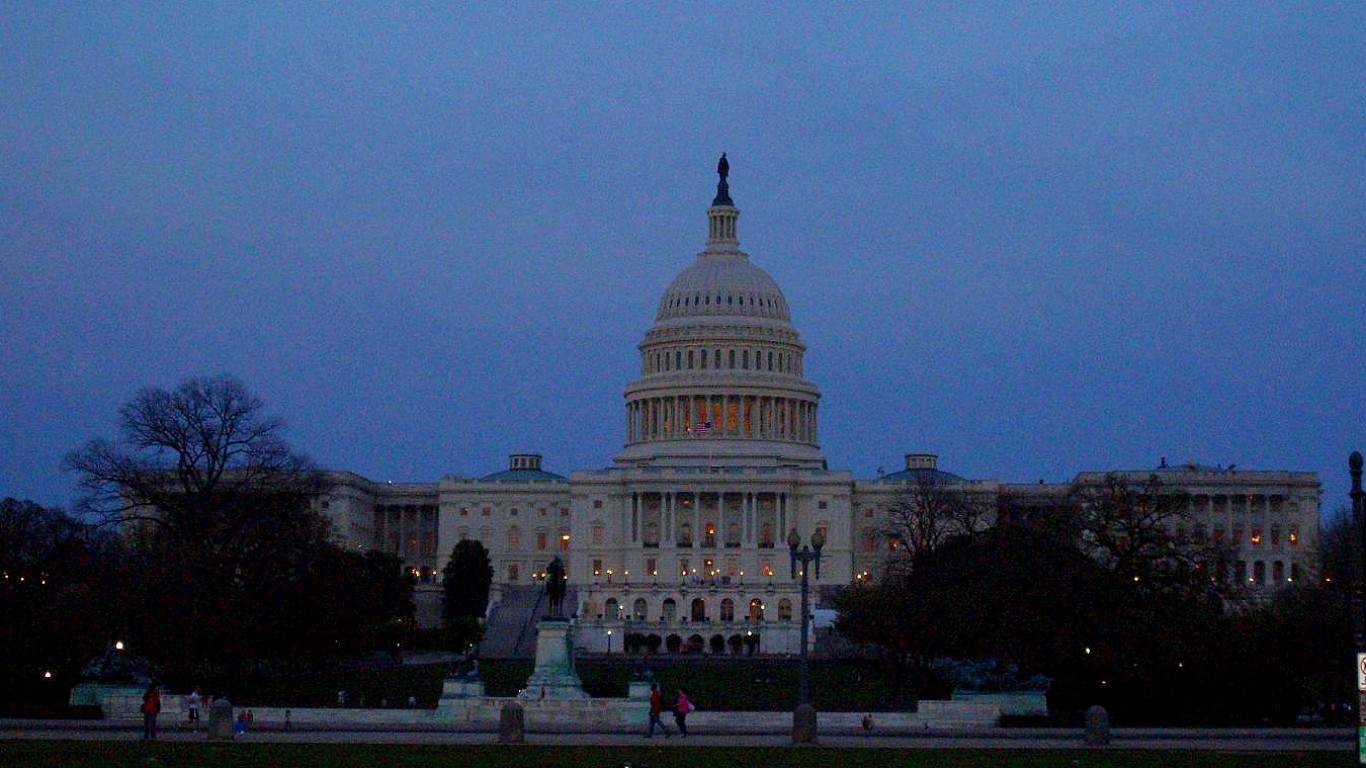
American voters will determine not just the presidency, but who controls Congress in November. One party may well win the government trifecta but it is more likely that one party will control the House, the other the Senate. Knowing the potential deal makers and deal breakers is important in a potentially divided legislature.
A Note on Party Leadership
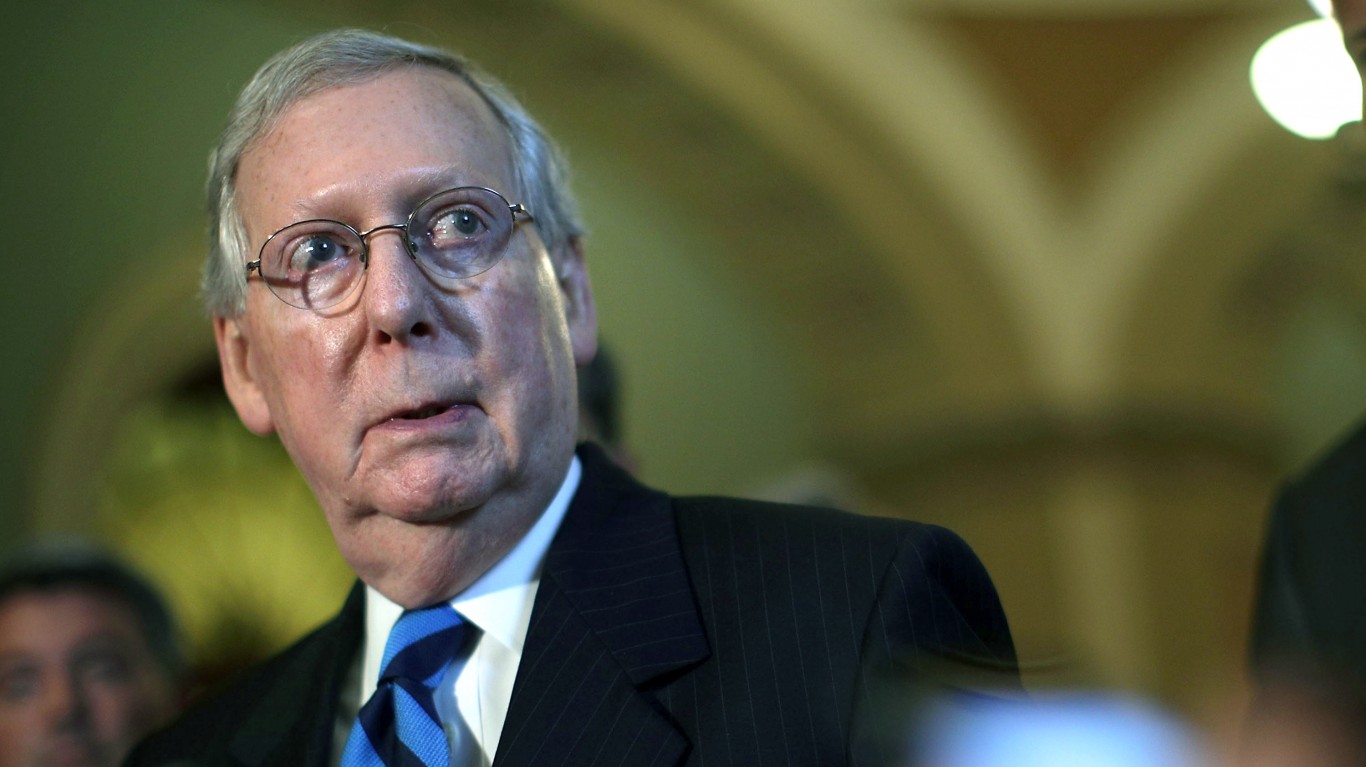
The bipartisan index does not track either the majority or minority leader in the Senate so Mitch McConnell and Chuck Schumer are not included in the rankings because party leadership operates quite differently from regular members. It also does not include Senators with less than six months of service so Ben Sasse, who resigned in January 2023, is not included.
10 – Mike Rounds (South Dakota)

Assumed office: 2015
Bipartisan ranking: 20
A former governor of South Dakota, Mike Rounds won the race for the state’s open Senate seat in 2014 after Democrat Tim Johnson declined to run for a fourth term. Rounds cruised to re-election in 2020 with 65% of the vote. Rounds is a fairly conventional conservative, ranking right in the middle of Republican senators.
He refused to go along with Donald Trump’s claims about the 2020 election and backed Tim Scott in the 2024 primary. He expressed the importance of “common sense” in passing bipartisan legislation and wrote the Respect Act which was signed into law in 2022. The act repeals discriminatory laws against Native Americans.
9 – Mike Braun (Indiana)
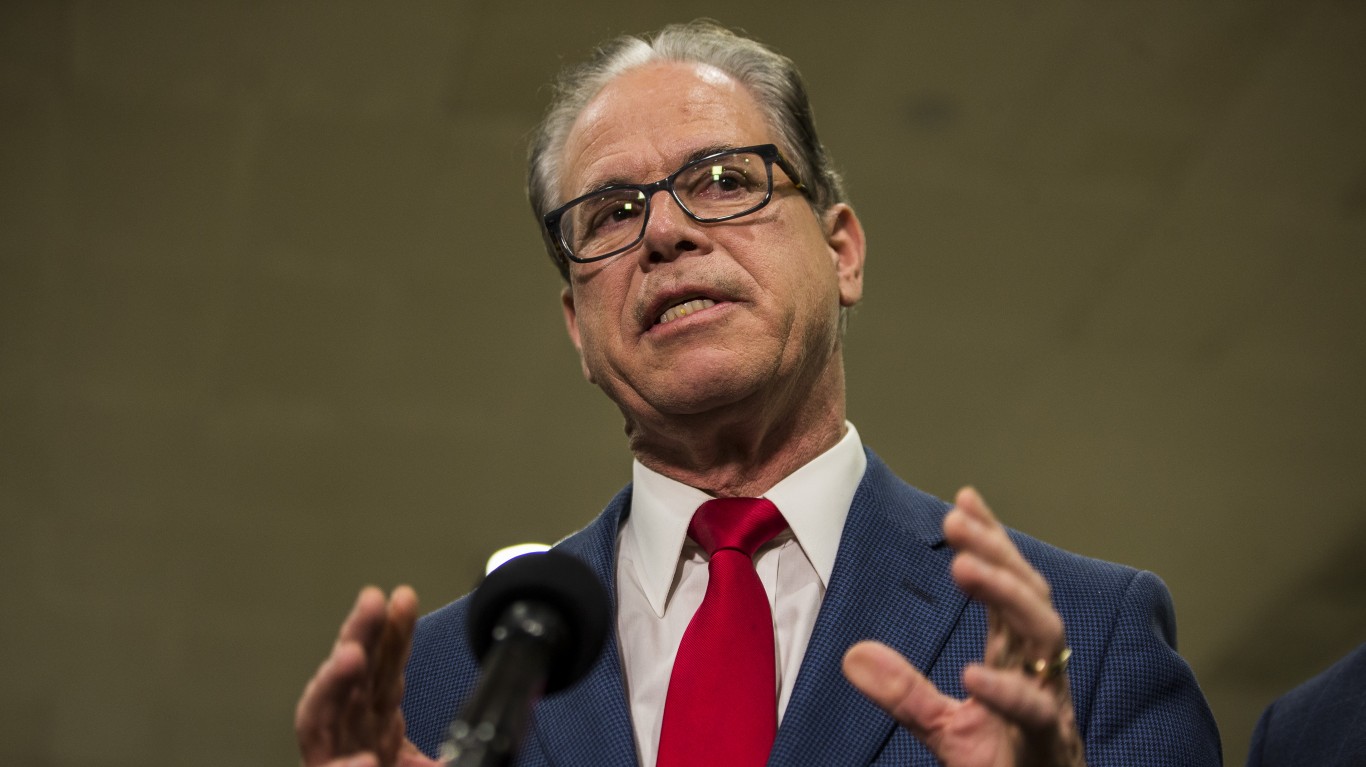
Assumed office: 2019
Bipartisan ranking: 19
Mike Braun defeated Democrat incumbent Joe Donnelly to flip the Senate seat to the Republicans in 2018. Despite being one of the furthest right members of the Senate, that hasn’t stopped him from working with Democrats. He’s sponsored or co-sponsored several bipartisan bills that have become law. He’s expressed interest in finding common ground on environmental issues and is a member of the bipartisan Climate Solutions Caucus.
He will not seek re-election in 2024 but will instead run for governor of Indiana. He won the primary in May and is all but certain to prevail in the general election.
8 – Bill Cassidy (Louisiana)
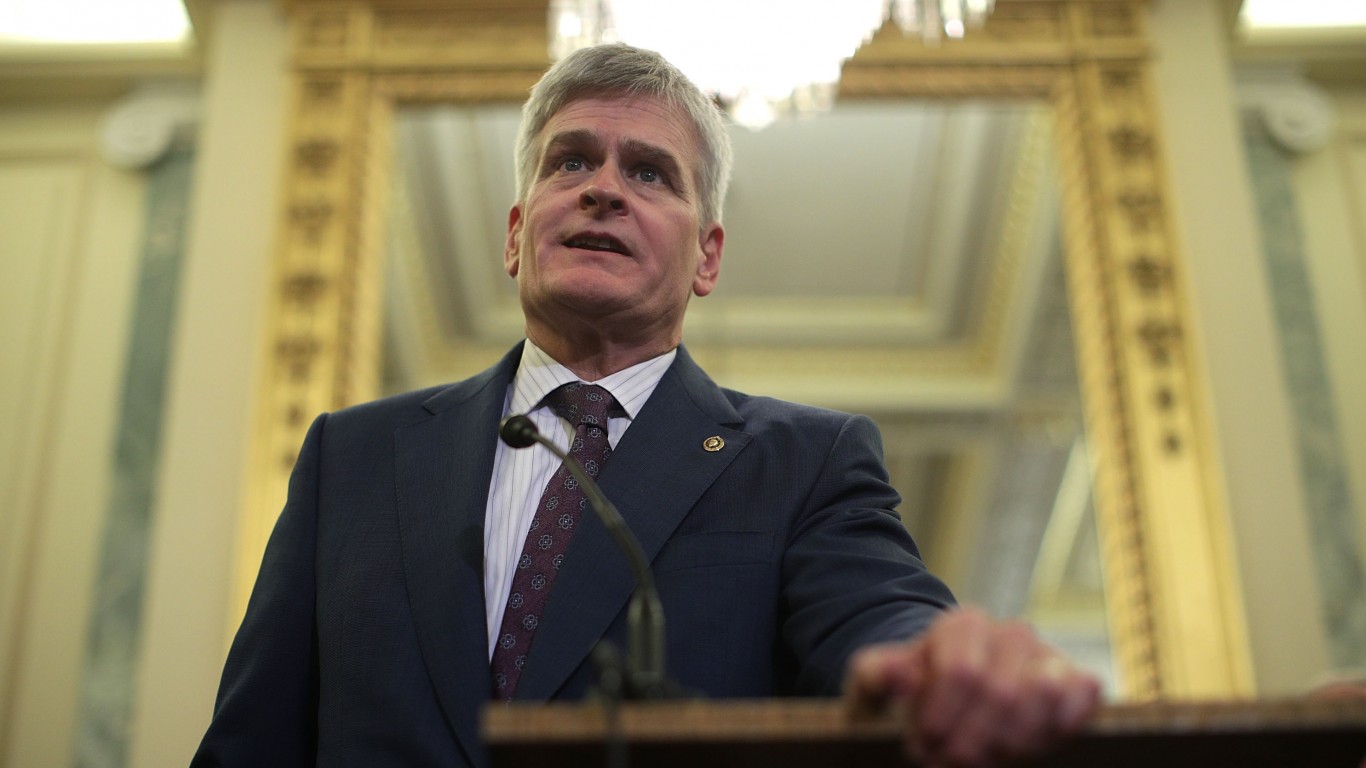
Assumed office: 2015
Bipartisan ranking: 18
Bill Cassidy defeated the incumbent Democrat Mary Landrieu in a runoff in 2014 and retained his seat in 2020 with a majority in the first round. Cassidy played a pivotal role in creating the bipartisan No Surprises Act which helped curb surprise medical billing in emergencies. The Louisiana Republican Party censured Cassidy for voting to convict Trump for inciting the January 6th insurrection.
7 – Shelley Moore Capito (West Virginia)
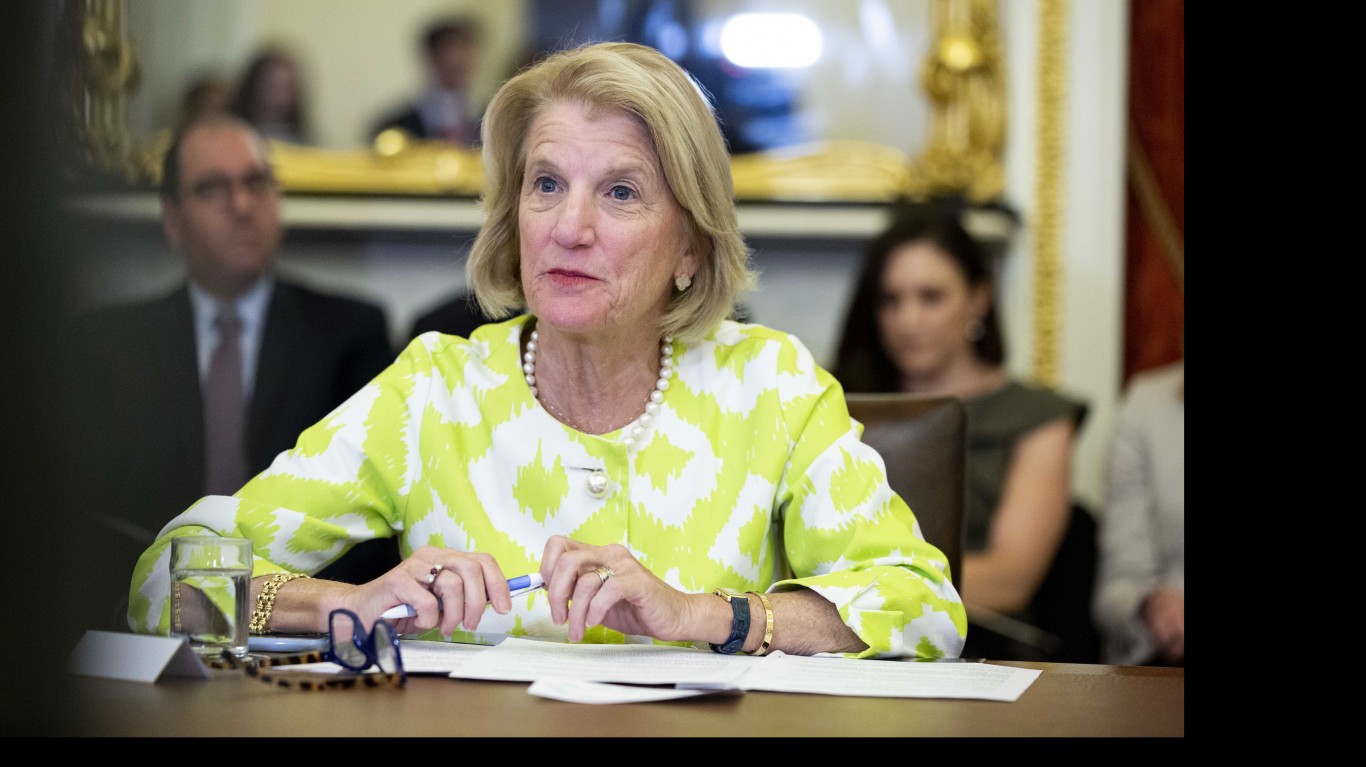
Assumed office: 2015
Bipartisan ranking: 13
The daughter of former Governor of West Virginia Arch Alfred Moore Jr., Shelley Moore Capito won a decisive victory in the 2014 Senate race. She won re-election in 2020 by an even larger margin. She’s part of the Republican Main Street Partnership, an organization that supports moderate Republicans. She leans conservative on social policy and has a mixed record on abortion.
Capito played an important role in getting the Infrastructure Investment and Jobs Act through Congress. She was one of 19 Senate Republicans who voted for the final version of the bill.
6 – Chuck Grassley (Iowa)
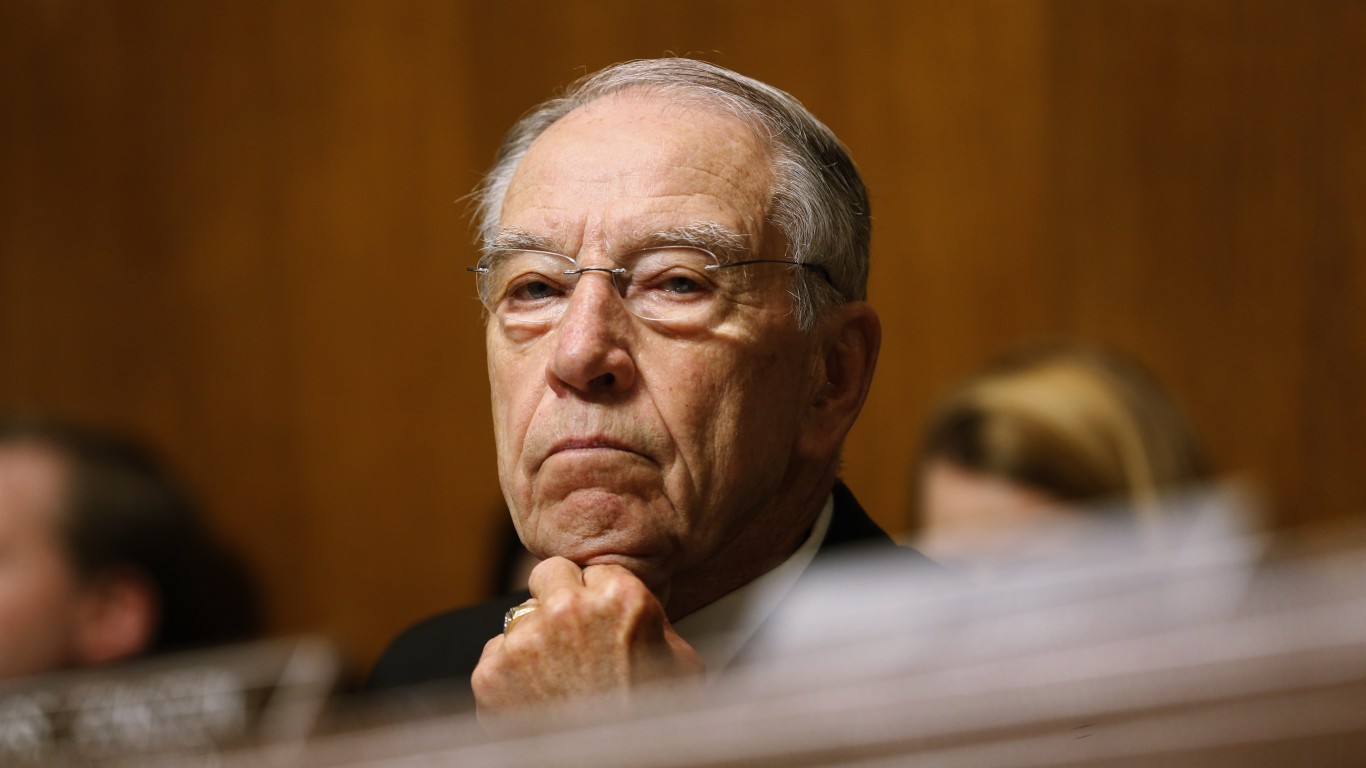
Assumed office: 1981
Bipartisan ranking: 11
Chuck Grassley won his first and closest Senate race when he defeated the Democratic incumbent John Culver in 1980. He won each of his next seven Senate races by comfortable majorites and went 27 years without missing a single vote. Grassley has a long track record of bipartisanship and was ranked 14th for cross-party cooperation in a survey of long-serving senators. Of his most recent high ranking, Grassley said bipartisanship is a necessity to get anything through the Senate:
bipartisanship does happen – it just doesn’t get media attention because it lacks controversy. In fact, bipartisanship is a necessity. Most bills need 60 votes to pass, and we simply don’t have 60 senators of the same party
Now 90, Grassley has already filed to run again in 2028. If he wins and sees out his term, he may just catch John Dingell’s record.
5 – Todd Young (Indiana)
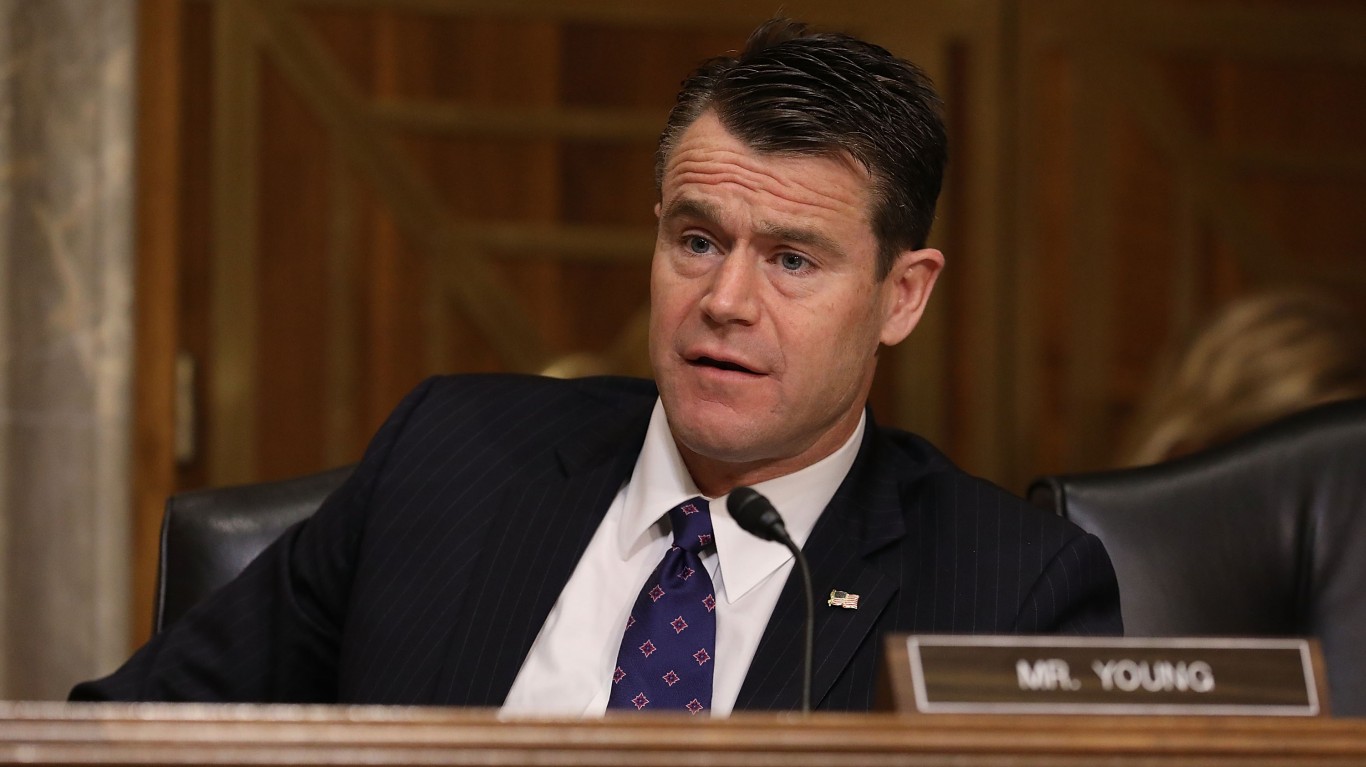
Assumed office: 2017
Bipartisan ranking: 9
Both of Indiana’s Republican Senators score highly for bipartisanship. Todd Young was elected in 2016 in a routine win and easily retained his seat six years later. He ranked highly for bipartisanship in his first term and entered the top ten in his second. Young was instrumental in getting the CHIPS and Science Act through the Senate. He takes a pragmatic approach to legislating and doesn’t like to be drawn into culture war arguments that get the most attention. As he said in a 2023 interview:
For the most part, I think we have a pretty damn good country. I don’t feel like spending every day angry or trying to work others into an angrier state. We need to be positive.
Young angered the right flank of his party when he refused to go along with Trump’s claims the 2020 election was rigged. Additionally, he will not endorse either candidate for the presidency in November. He may have to fend off a primary challenger in 2026 but should have no trouble holding his seat in a general election.
4 – Jerry Moran (Kansas)
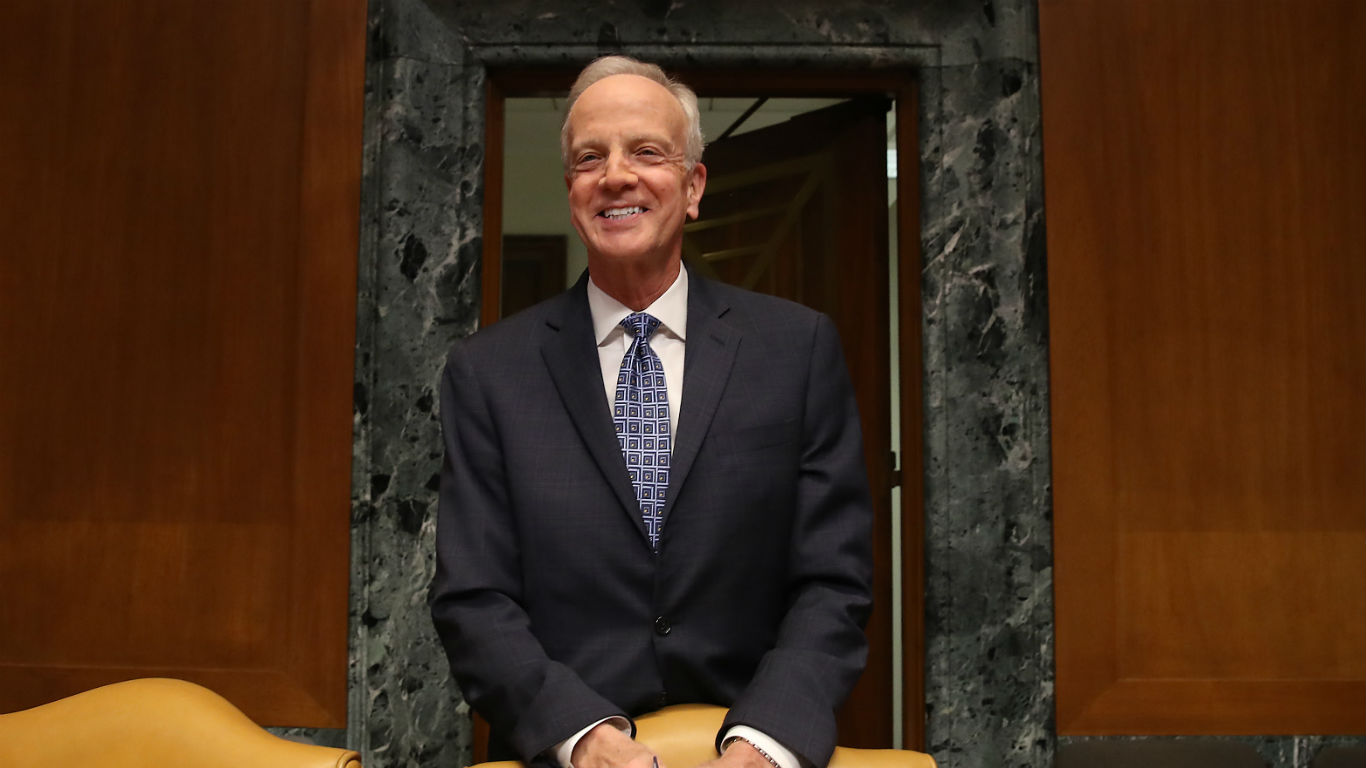
Assumed office: 2011
Bipartisan ranking: 8
Jerry Moran won his first Senate election with over 70% of the vote in 2010 and was comfortably re-elected in 2016 and 2022. Moran occupies a safe Republican seat but is more willing to reach across the aisle than most of his colleagues. He’s sponsored or co-sponsored several bipartisan bills that have become law. He’s spoken of the importance of compromise and the danger of gridlock:
Maybe this is the time to set aside some of those differences that we fight about and work together, because our nation is in jeopardy from a national security perspective
3 – Lisa Murkowski (Alaska)
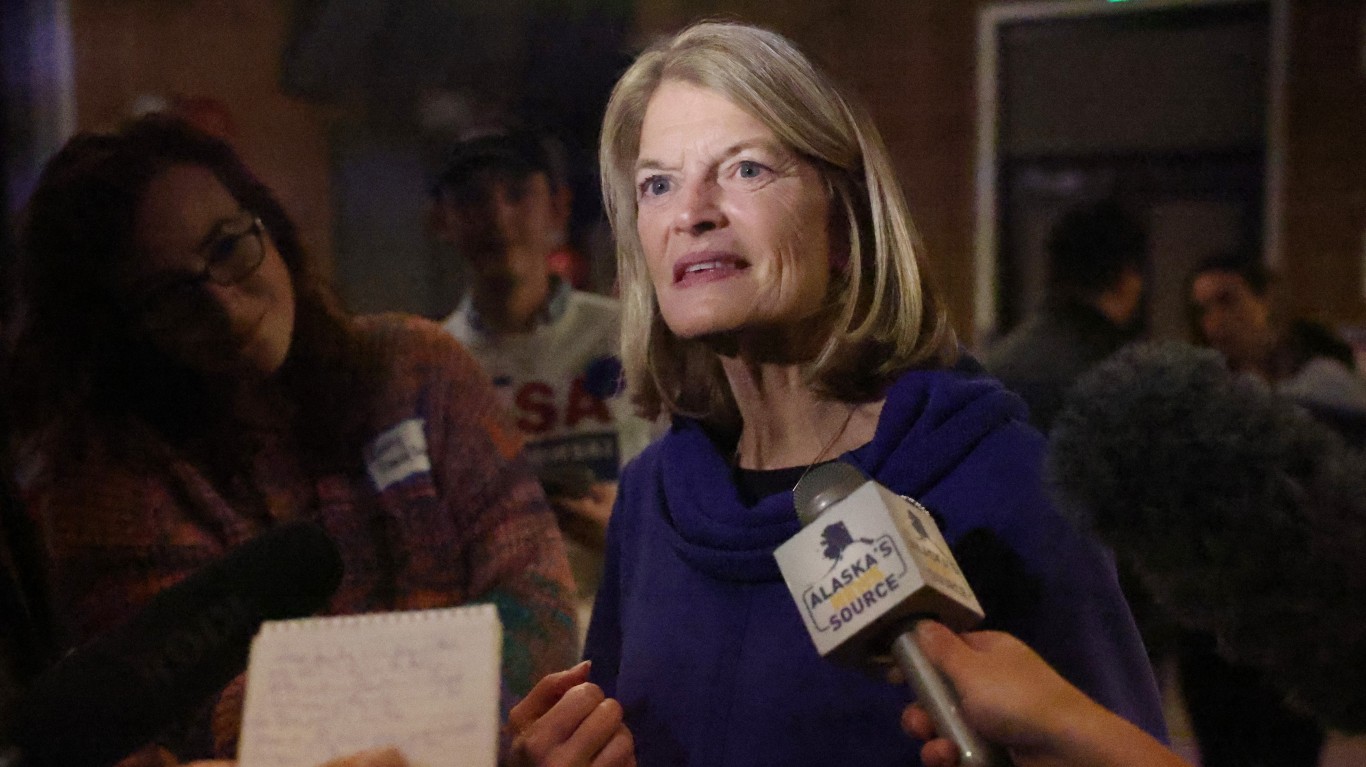
Assumed office: 2002
Bipartisan ranking: 7
Lisa Murkowski was appointed to the Senate in 2002 by her father to fill the seat he vacated when he became Governor of Alaska. She won a full term in a competitive race in 2004 and has overcome some tough fights to keep hold of her seat. In 2010, she lost the primary but won a write-in campaign. She won close races in 2016 and 2022 without crossing 50% of the vote. Murkowski is the second-most liberal Republican in the Senate and her independent streak has caused some friction with her more conservative colleagues.
She expressed frustration with the direction of her party and choice of nominee but ruled out crossing the aisle. With Democratic moderates leaving the Senate in 2025, her political position may become even more isolated.
2 – John Cornyn (Texas)
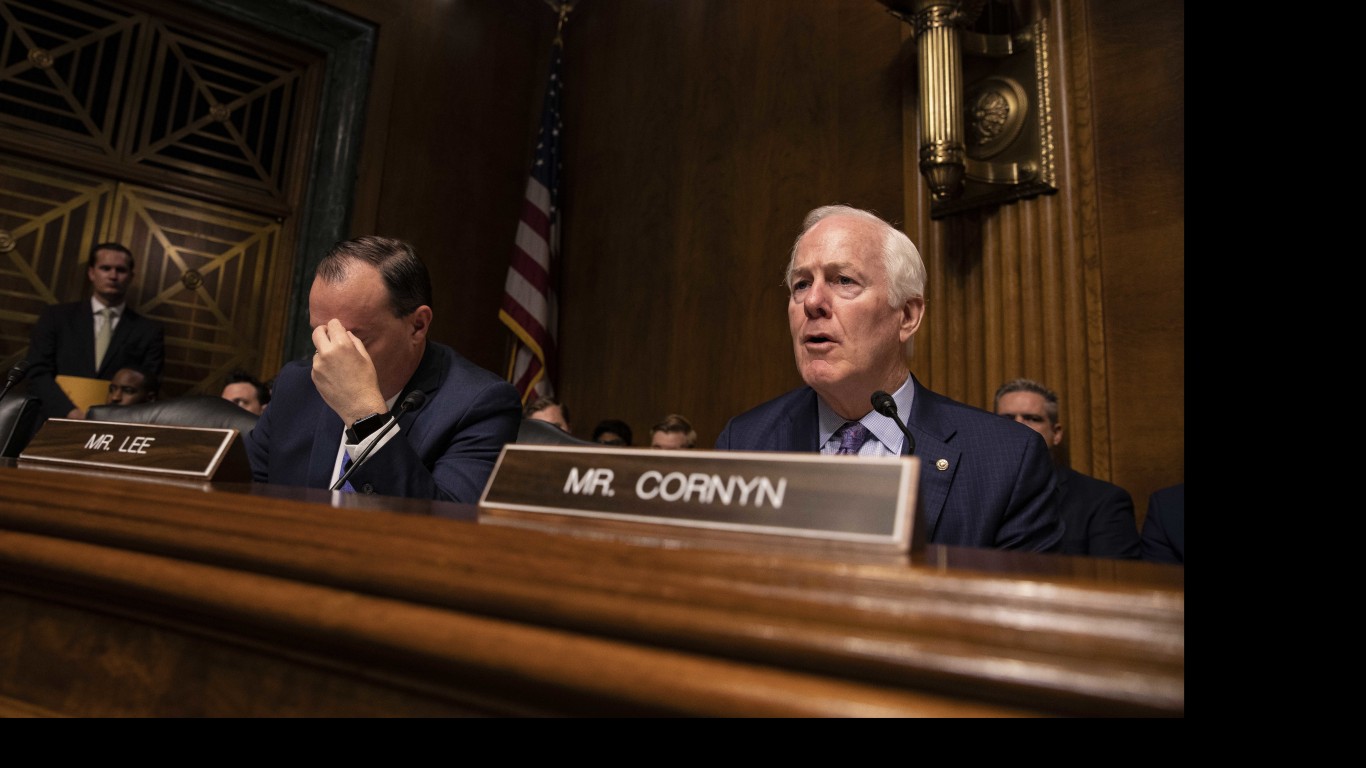
Assumed office: 2002
Bipartisan ranking: 5
John Cornyn was first elected to the Senate in 2002 and has won re-election three times without much difficulty. Though much ideologically further right than his Democratic colleagues, Cornyn has a long track record of attracting bipartisan co-sponsors for his bills. No other Republican has attracted more bipartisan co-sponsors for their bills.
He shrugged off criticism in his home state to get bipartisan gun legislation through the Senate in the wake of the Uvalde tragedy. As he reflected on his key role in passing the Safer Communities Act, he spoke of the importance of not letting perfect be the enemy of good:
I guess we all want a hundred percent of what we want. But the truth is when you say ‘I want a hundred percent or nothing,’ invariably, you’re going to end up with nothing, and that wasn’t acceptable.
1 – Susan Collins (Maine)
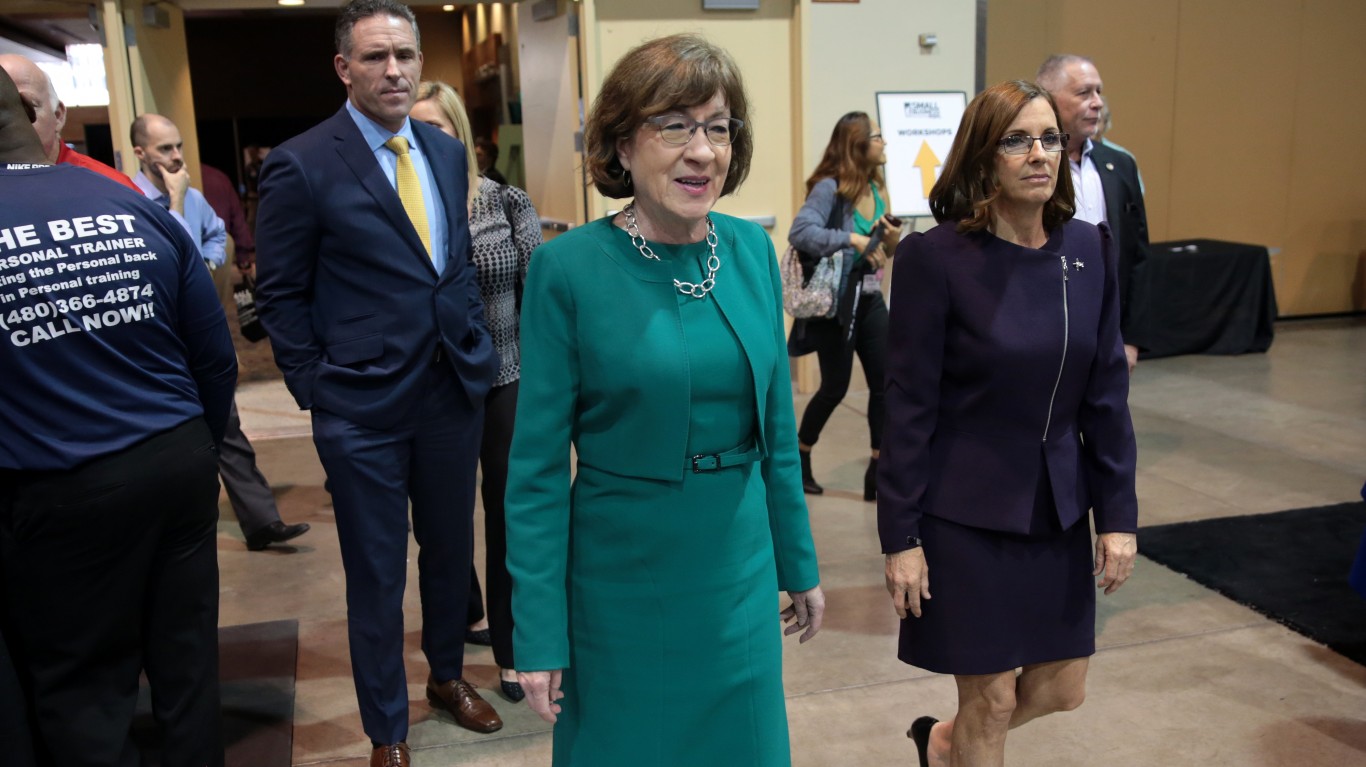
Assumed office: 1997
Bipartisan ranking: 1
As a Republican Senator in a state that hasn’t gone for the GOP nominee for president since 1988, bipartisanship is a political necessity for Susan Collins. She was first elected in 1996 and managed comfortable victories in 2002, 2008, and 2014. Collins defied expectations in 2020 when she heavily outperformed Donald Trump to win a race she was tipped to lose.
Susan Collins is the least conservative and most bipartisan Republican Senator. She’s occupied the top spot in the bipartisan index for 9 of the last 11 years. As she explained in a recent press release:
I have long believed that Congress produces the best legislation when it engages in honest debate, considers alternate viewpoints, and incorporates ideas from both Republicans and Democrat
Conclusion

Get Ready To Retire (Sponsored)
Start by taking a quick retirement quiz from SmartAsset that will match you with up to 3 financial advisors that serve your area and beyond in 5 minutes, or less.
Each advisor has been vetted by SmartAsset and is held to a fiduciary standard to act in your best interests.
Here’s how it works:
1. Answer SmartAsset advisor match quiz
2. Review your pre-screened matches at your leisure. Check out the advisors’ profiles.
3. Speak with advisors at no cost to you. Have an introductory call on the phone or introduction in person and choose whom to work with in the future
Thank you for reading! Have some feedback for us?
Contact the 24/7 Wall St. editorial team.



